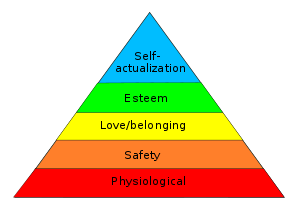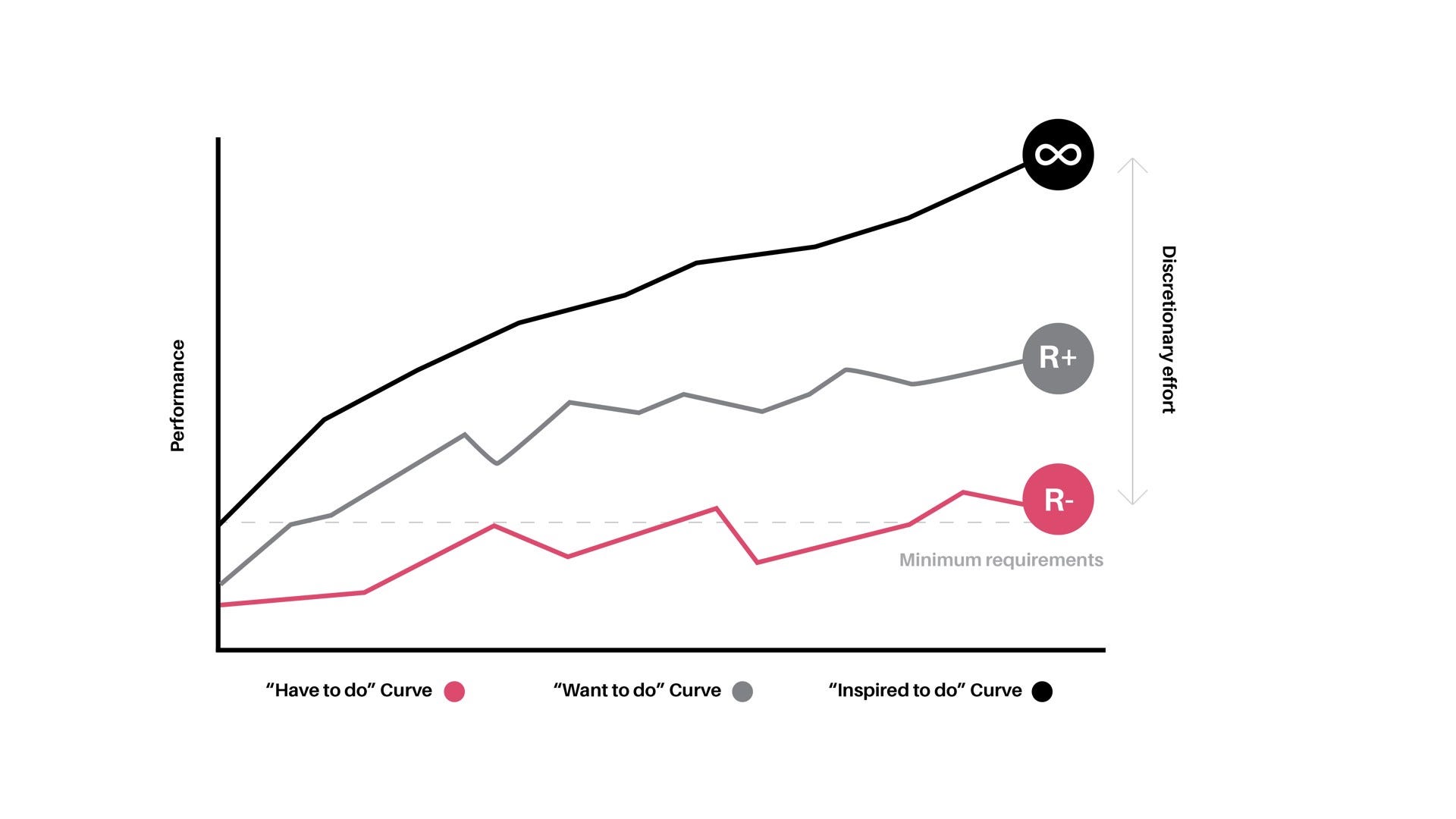
“If your reason isn’t big enough, your excuses will be”
Many people believe there is no possible way that humans built the pyramids of Egypt. The craftsmanship of the great pyramids surely could not have been achieved by man alone? These pyramids were built over 4,500 years ago with stones weighing over two tonnes each. Not only are the stones precisely positioned to form the structure, but the great pyramid in Giza is astronomically aligned with the stars in Orion’s Belt. As a result, many people believe they must have been built by aliens.

So how was such a magnificent feat achieved in a time when they had no wheels nor any sophisticated tools?

In a world where our basic needs are satisfied, there is an increasing desire for true meaning in our lives.
Since our lives consist largely of our work lives, then our work lives must also have meaning.
Most people work in order to earn money in order to live, the lucky ones are those who do what they love and get paid for it.
When monetary compensation is the only carrot in the workplace the employee-employer relationship becomes purely transactional. Paradoxically, financial goals can lead to a less engaged workforce who become disillusioned with their career.
The brave ones are those who try to recalibrate the company to have a resonant meaning and often if they can’t change the company, they change companies!
After a while in many organisations, semi-state and corporate alike, we see once-energetic workers gradually fade and adapt to the way things are done ‘round here. They drink the corporate koolade.
Many brilliant people are lobotomised by the organisation to fit in. The irony is oftentimes these same people were originally brought in to change the organisation in the first place. We see this time and time again where these mavericks simply cannot operate and spend more of their energy on politics than on getting sh!t done.
Those who do decide to stay make a pact with the inner devil. They sell their creative, evolving, change-making soul for the pay package. They make a decision that the ease of the role and the accompanying benefits are worth foregoing meaning in their work life.
Eventually, they adapt and convince themselves that it ain’t all that bad. They stick their brain in the drawer. They develop a great daily routine. Of course, this routine has nothing to do with advancing the organisation, this routine is designed to avoid thinking about the fact that their work has no meaning. They make everything around their role the carrot to get through the workday.
If they stay long enough they often become unemployable because they lose their edge. They stopped learning while in the organisation — except that is — learning how to operate within a company riddled with bureaucracy and politics.
There will always be people in all societies who lack drive, we are all made differently. Maybe they are the sane ones, but without the mavericks, the human race would not advance.
“Here’s to the crazy ones. The misfits. The rebels. The troublemakers. The round pegs in the square holes. The ones who see things differently. They’re not fond of rules. And they have no respect for the status quo. You can quote them, disagree with them, glorify or vilify them. About the only thing you can’t do is ignore them. Because they change things. They push the human race forward. And while some may see them as the crazy ones, we see genius. Because the people who are crazy enough to think they can change the world, are the ones who do.” — Rob Siltanen
Discretionary Effort
“Most people work just hard enough not to get fired and get paid just enough money not to quit.” — George Carlin
We have all read the case studies of companies who find an inspirational leader, who turns around the company.
How do these leaders achieve such extraordinary results when there was no increase in staff? Some achieve great things with a reduction of staff.
The only way you can do this is by changing mindsets. This is the secret behind great businesses, great sports teams, great movements.
Ian McClean, founder of Flow Group, a previous guest on the innovation show told us of a study which uncovered that employees only had to use 31% of their ability in order to keep their job. 31%!!!
This leaves an immense opportunity for leadership to tap into the 69% left on the table. This 69% is called discretionary effort, the difference between what you have to do and what you could do.
They say a farmer does not make crops grow but creates the environment for crops to flourish. Leaders must do this in the workplace to empower people to access more discretionary effort. By minimising bureaucracy and hiring the right people and developing a great culture leaders can hugely increase discretionary effort. While this raises the bar to the second curve below, we can still do better than this.
By inspiring their colleagues, leaders can enable incredible growth and jump the curve to create an inspired workforce.

The Why — The Purpose — The North Star
Exponential “organisations” (as in organised movements of people) are harmonised not just by compelling leaders. Yes, leaders have the power to unite a mass of people and yes they have the ability to adapt their story for different parts of their organisation. However, it was the common purpose which ultimately aligned them and empowered them to growth.
Every company aims to make profits, but having an overarching purpose or “North Star” is the way to tie all systems together and achieve greatness. For regular followers of The Thursday Thought, you will have read about the concept of the North Star before.
“The North Star” from a marine perspective refers to the star, which guides ships in a certain direction. At night, ancient mariners were guided by the stars. The North Star was their constant marker. The North Star remained in one consistent direction, while other stars rotated around it. This gave sailors a consistent truth from which to determine their direction.
From a business a personal perspective we all need such direction. We need a consistent (agreed upon) direction, which guides us, both in collective and individual activities. This collective direction then guides all organisational thinking and leads to total alignment. This North Star needs to be both explicit and implicit.
The implicit meaning needs to be a set of themes that everyone can internalise and interpret his or her own meaning. This ensures emotional attachment.
Leadership is essential, but true leadership comes from identifying a resonating “Why” for the workplace and ultimately the marketplace.
Thanks for reading, please hit clap so others might read this.
On this week’s Innovation Show we welcome one of Ireland’s original tech success stories Jerry Kennelly. Jerry tells us how his childhood was key to his successful mindset. We talk about his parents’ business run from the home in Kerry and how their focus on craft, quality and customers informed his own working practices. He tells us of how his family built one of Ireland’s most successful regional papers “Kerry’s Eye” www.kerryseye.com, still in the family today.
He tells us how to overcome the dark days of entrepreneurship and how focus and commitment led him to build Stockbyte, one of the world’s first royalty-free stock imagery websites. After the acquisition of Stockbyte Jerry tells us how he focused on not-for-profit ventures in entrepreneurship. While he still continues to mentor and supports the entrepreneur community Jerry co-founder Junior Entrepreneur a phenomenal movement to instil the mindset and practices of entrepreneurship in children at a young age. Finally, Jerry tells us of his current venture www.tweak.com, which democratises design offering a similar model to that he built with Stockbyte and offering organizations an easy way to control and save costs on their design and creative process.
The show is broadcast on RTÉ Radio 1 extra 3 times weekly and is on iTunes, TuneIn Stitcher Player FM and Google play. The website is here and below is Soundcloud.